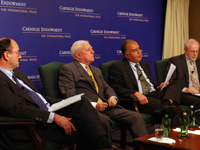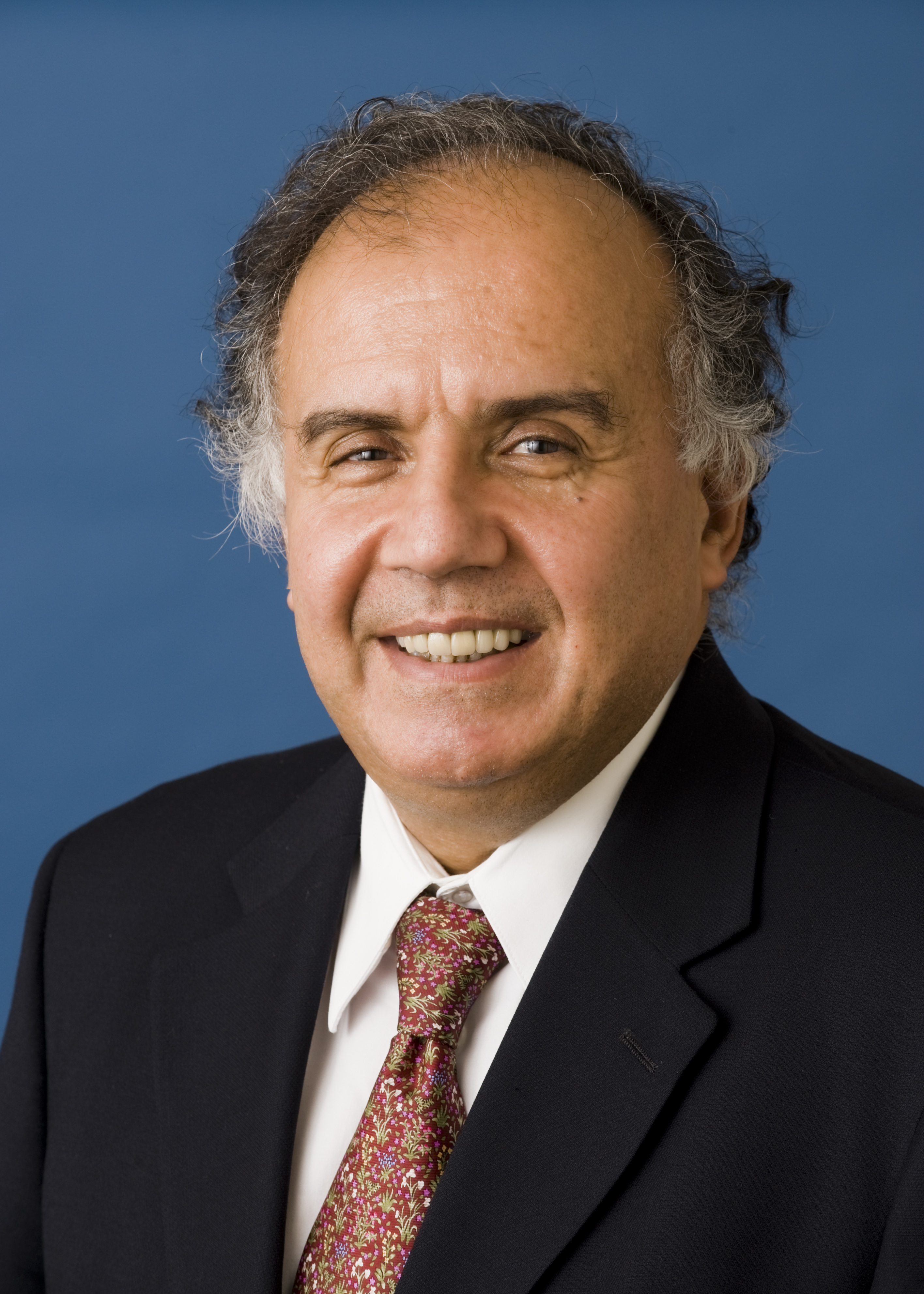{
"authors": [
"Claude Barfield",
"Bernard Hoekman",
"Jeffrey Schott",
"Uri Dadush"
],
"type": "event",
"centerAffiliationAll": "",
"centers": [
"Carnegie Endowment for International Peace"
],
"collections": [],
"englishNewsletterAll": "",
"nonEnglishNewsletterAll": "",
"primaryCenter": "Carnegie Endowment for International Peace",
"programAffiliation": "",
"programs": [],
"projects": [],
"regions": [
"North America"
],
"topics": [
"Economy",
"Trade"
]
}
Where is the Global Trade Agenda Headed?
Wed, December 7th, 2011
Washington, D.C.
IMGXYZ3363IMGZYXThis year’s World Trade Organization Ministerial Conference will be held at a time when the global trading system faces considerable challenges. The global economic environment is deteriorating, trade tensions are mounting, and regional trade agreements continue to proliferate as progress on the Doha round has stalled.
Claude Barfield of the American Enterprise Institute, Bernard Hoekman of the World Bank, Jeffrey Schott of the Peterson Institute for International Economics, and Carnegie’s Uri Dadush discussed the future of the global trade agenda.
Future of Doha
- Is Doha dead?: While Doha is not dead yet, Hoekman argued that it is in a state of paralysis, with little expressed interest in reviving the talks. In a significant departure from its past endorsements, the recent G20 communiqué didn’t include any language on concluding the Doha expeditiously. In spite of this apparent lack of momentum, Schott argued that the Doha Round issues will not go away. Doha can still be useful if it can lock-in what countries have done unilaterally.
- Explaining the Failure: Hoekman offered a multitude of reasons for the failure of the Doha Round, including:
- High ambitions at the beginning of the negotiations that led to the inclusion of controversial issues, such as investment;
- Neglect of the rule–setting dimensions of the WTO as it failed to lock in liberalizations done unilaterally;
- Delayed negotiations on issues of major significance, such as services;
- Declining gains from multilateral liberalization as countries continued to liberalize unilaterally.
- High ambitions at the beginning of the negotiations that led to the inclusion of controversial issues, such as investment;
- Who to Blame: Hoekman and Schott agreed that the leading trading nations, particularly the United States and the European Union, have stumbled in providing leadership. Garfield disagreed, arguing that the there was not enough on the table to satisfy U.S. major sectors.
Protectionism
Panelists agreed that protectionism was well contained during the recent financial crisis, but non-traditional trade policy measures still pose a significant risk to the global trading system.
- Not Unidirectional: Hoekman noted that although many countries were active in raising restrictions, the use of non-tariff measures was very country-specific and supported domestic economic activity. On the other hand, there were many instances where liberalization and global trade remained robust, added Hoekman. The growth in integrated global supply chains has played a significant role in limiting the use of traditional protectionist instruments like tariffs and quotas.
- New Protectionism: Schott pointed out that the level of protection since 2008 has been underreported. He warned that new protectionism, such as government subsidies provided for domestic adjustment that distort trade and investment, present a real danger.
- Protectionism and Doha: In the short- to medium-term, failure in the Doha round may not directly lead to a rise of protectionism, argued Barfield. But, over time, it is symbolically important that nations live up to their obligations, since interventions through means such as subsidies could have an effect on the trading system.
Regional Trade Agreements (RTAs) and WTO
- Are RTAs Succeeding Where the WTO is Failing?: Unlike WTO, RTAs serve as a forum for regular discussion of economic policy and facilitate movement of natural persons, said Hoekman. Nevertheless, outside of the European Union, RTAs are not doing a lot of actual liberalization in areas such as agriculture and services, argued Hoekman. Schott disagreed, arguing that RTAs such as the U.S.-Korea Free Trade Agreement have encouraged extensive liberalization in agriculture and services.
- Negotiation Laboratories: RTAs have served well as negotiating laboratories for new trade disciplines, some of which have evolved up to the multilateral level, argued Schott. Barfield disagreed, arguing that that much of the liberalization in RTAs has not been translated to the multilateral level.
Significance of the Trans-Pacific Partnership (TPP)
- Economic Significance: The TPP has the potential to account for a sizable share of global trade and economy if Japan, Mexico, and Canada decide to join, noted Barfield. Hoekman agreed, adding that the Japan is the only large country with no deep free trade agreement.
- Private-sector Engagement: The involvement and engagement of the private sector makes the TPP unique, said Hoekman. If successful, the private sector’s involvement in identifying problems and addressing issues could be transferred to the WTO, suggested Hoekman.
- TPP and China: If the TPP comes to be perceived as anti-China, it will put East Asian nations in a difficult position of choosing between the United States and China, argued Barfield. Schott disagreed, arguing that such an outcome is unlikely because countries, such as Korea and Japan, are initiating negotiations with China in parallel with the TPP.
Carnegie does not take institutional positions on public policy issues; the views represented herein are those of the author(s) and do not necessarily reflect the views of Carnegie, its staff, or its trustees.
